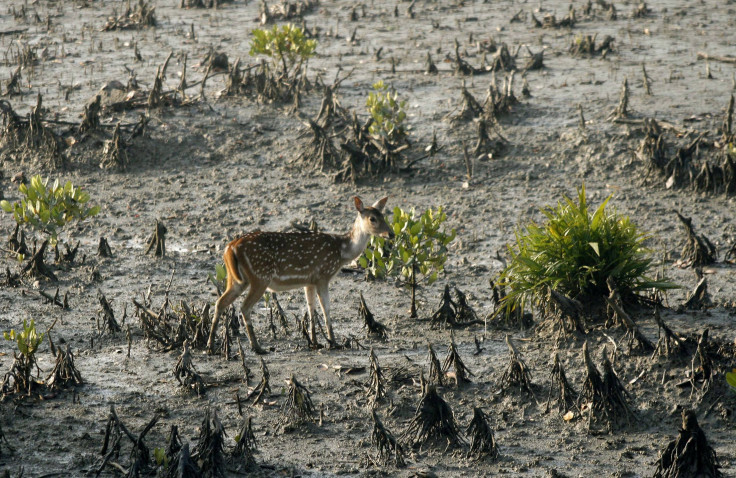Oil Spill In Bangladesh's Sundarbans Mangroves Threatens Endangered Dolphins, Wildlife

Wildlife in the Sundarbans -- an ecological hotspot straddling southwestern Bangladesh and eastern India -- is under serious threat after a vessel carrying nearly 350,000 liters of oil sank in a river in the region on Tuesday. Officials from Bangladesh’s forest department said on Friday that the oil spill, which has already spread over a 40-mile area, is an ecological “catastrophe,” according to media reports.
The Sundarbans, which covers an area of nearly 3,900 square miles and is home to the world’s largest mangrove forests, has been designated a UNESCO World Heritage Site for its rich biodiversity. The Shela river, where the oil tanker reportedly sank, along with the Pashur, another affected river, are home to several species, including the rare Irrawaddy and Ganges dolphins.
“This catastrophe is unprecedented in the Sundarbans and we don't know how to tackle this,” Amir Hossain, chief forest official of the Sundarbans, reportedly said. “We're worried about its long-term impact because it happened in a fragile and sensitive mangrove ecosystem … the oil spill has already blackened the shoreline (and is) threatening trees, plankton, vast populations of small fishes and dolphins.”
The oil tanker partially sank into the Shela after colliding with another vessel on Tuesday. Although the Bangladesh government has reportedly sent vessels carrying oil dispersants to the area, several environmentalists warned that the damage to the region’s delicate ecology was already done.
“I visited the sunken trawler this morning. Only few hundred liters of oil remain inside, so almost all the oil has spilled into the Sundarbans,” Rubayat Mansur, a senior official of the New York-based Wildlife Conservation Society, said, according to media reports.
Tapan Kumar Dey, a senior wildlife conservation official, said that though the risk of the oil spill damaging the region's biodiversity is very high, no deaths of any animals, including dolphins and crocodiles, had been reported so far.
“We have spotted dolphins coming out of the water for air and going down again in some places … crocodiles' movement in the affected areas has been less after the disaster and we are trying to determine actually what happened to them,” Dey reportedly said, adding that several teams were trying to assess the immediate as well as the long-term impact of the oil spill.
© Copyright IBTimes 2024. All rights reserved.












